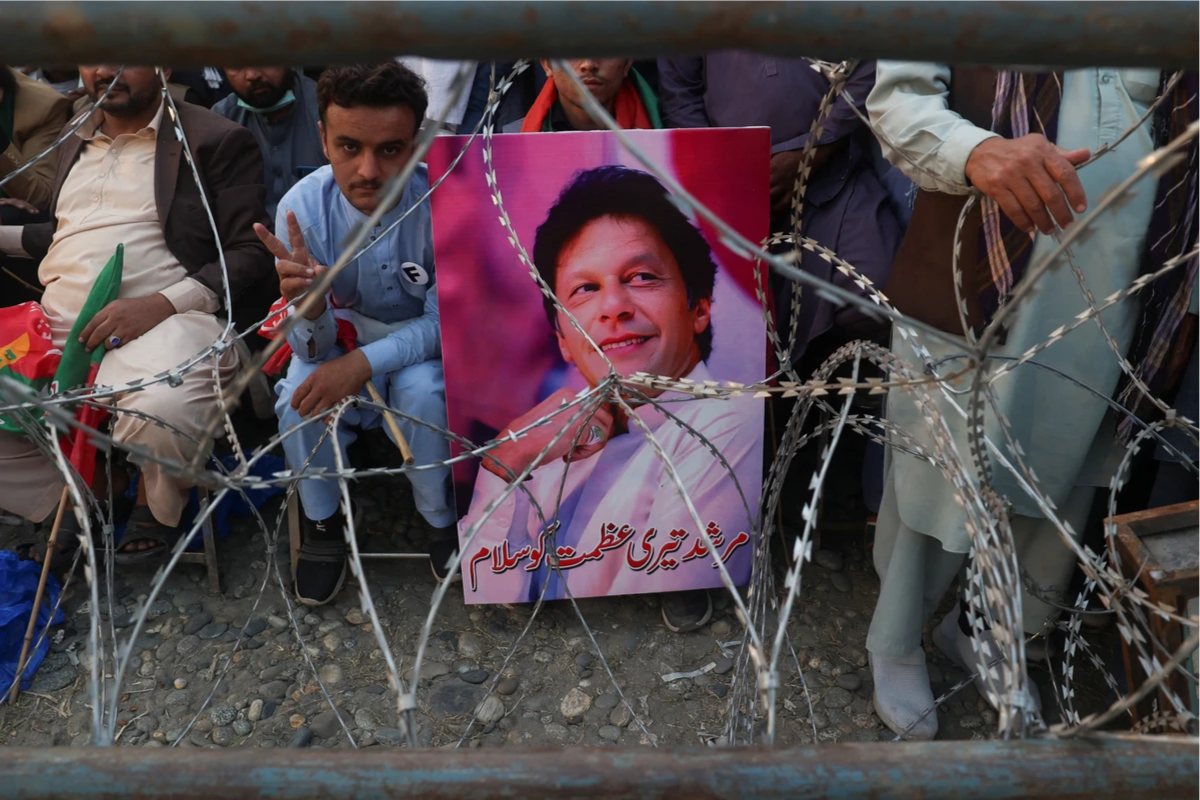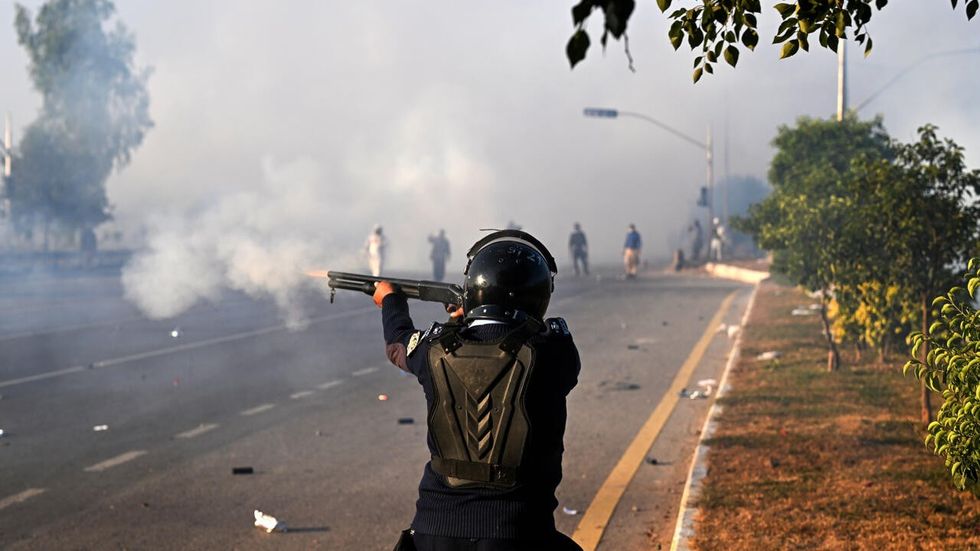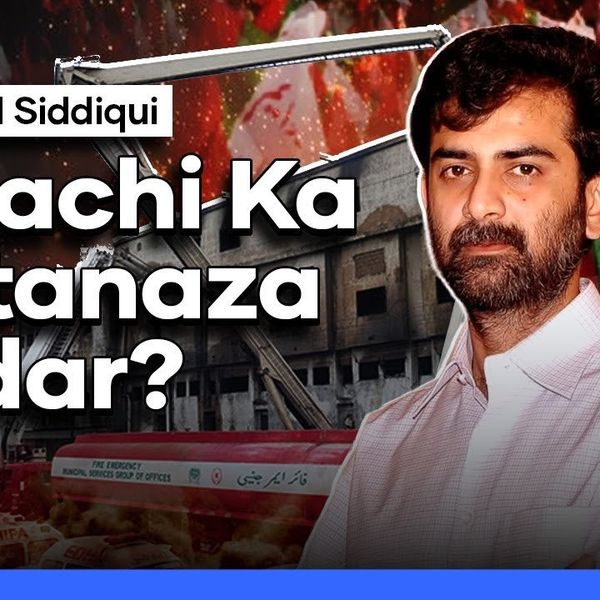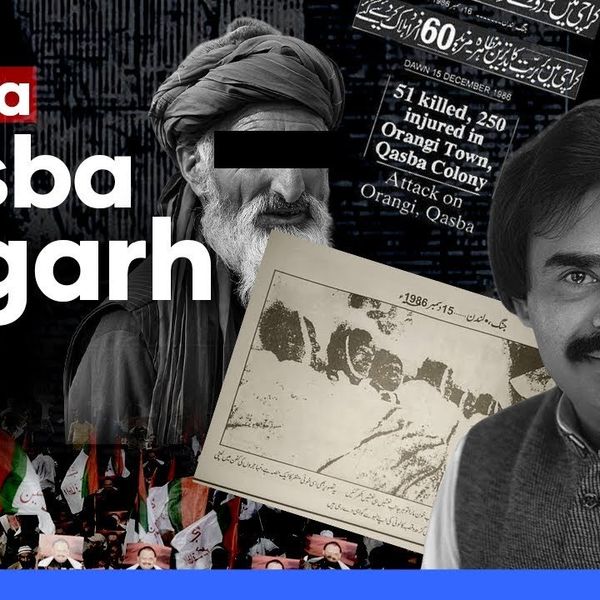Pakistan’s ex-PM Khan’s party faces internal strife after botched ‘final call’ protest
Criticism is mounting against Barrister Gohar, Salman Akram Raja, KP CM Gandapur, and Bushra Bibi
News Desk
The News Desk provides timely and factual coverage of national and international events, with an emphasis on accuracy and clarity.

A supporter of jailed former Pakistani Prime Minister Imran Khan's party, the Pakistan Tehreek-e-Insaf (PTI), reacts as he along with others attend a rally demanding his release in Swabi, Pakistan November 9, 2024.
Reuters
Salman Akram Raja resigns; Barrister Gohar denies stepping down
Leaders blame Bushra Bibi for overruling safer rally alternatives
Calls for bold leadership amid worker discontent and party discord
Pakistan Tehreek-e-Insaf (PTI), the main opposition party in Pakistan, is grappling with internal strife after its failed attempt to stage a sit-in at D-Chowk, Islamabad, demanding the release of jailed party leader and former Prime Minister Imran Khan.
The protest ended in chaos, with violent clashes between protesters and law enforcement agencies, leaving at least 10 dead and dozens injured.
Party insiders reveal mounting frustration with what many describe as weak and indecisive leadership.
- YouTubewww.youtube.com
PTI’s nominated Secretary General Salman Akram Raja reportedly stepped down, citing "personal reasons," deepening the leadership crisis.
Meanwhile, PTI Chairman Barrister Gohar Ali Khan denied reports of his resignation. “I am the elected chairman of the party, not resigned,” he said in a statement. “The news about my resignation is misleading... don’t listen to such rumors.”
Adding to the turmoil, Sahibzada Hamid Raza, leader of the Sunni Ittehad Council (SIC) and a PTI ally, resigned from both the National Assembly and PTI’s Core Committee.
Leadership under fire
Criticism is mounting against key figures, including Barrister Gohar, Raja, Khyber Pakhtunkhwa Chief Minister Ali Amin Gandapur, and Imran Khan’s wife Bushra Bibi. Detractors argue that poor decision-making led to the protest's failure.
Shahid Khattak, a senior PTI leader, openly criticized the leadership for abandoning party workers. “The purpose of the march was to achieve our constitutional objectives. Yet, where were those holding key positions? Is their job only to enjoy perks?” Khattak wrote on his official X handle.
He added, “If they anticipated unrest, why didn’t they stop the march? They had authority and access to Khan but left workers vulnerable to police brutality. This is an unforgivable crime.”

Shaukat Yousafzai, another senior party leader, echoed similar sentiments, pointing fingers at Bushra Bibi for overruling a safer plan to hold the rally at Sangjani.
“Khan had agreed to Sangjani, but Bushra’s insistence on D-Chowk caused us to lose everything. If leadership cannot make the right decisions, they must resign,” he said in a video message.
Yousafzai accused the leadership of abandoning protesters. “The Punjab leadership was missing, and no one was there to support the workers. Only a handful, like Gandapur, Asad Qaiser, Omar Ayub, and Ali Asghar, stood by them,” he said in a video statement.
Planning and logistical failures
The protest's lack of planning has drawn sharp criticism. “Even if we had reached D-Chowk, there was no concrete plan. Why wasn’t a consultative committee formed before leaving Peshawar?” Yousafzai asked.
Barrister Muhammad Ali Saif, a spokesperson for the KP chief minister, in an interview with a local news channel revealed that poor decisions exacerbated the situation.
“Khan initially agreed to Sangjani, which could have been a safer option, but internal disagreements led to the disastrous D-Chowk plan,” he said.
- YouTubewww.youtube.com
Yousafzai also highlighted the logistical shortcomings. “Low turnout, insufficient facilities, and the inability to manage participants from remote areas contributed to the failure. Workers who travelled long distances were left disappointed by the chaos,” he added.
Calls for accountability
Khattak and Yousafzai demanded internal accountability, calling for a leadership overhaul. “This is not about positions or titles; it’s about standing with the workers and honoring Khan’s vision. Weak leaders have no place in PTI,” Khattak said.
Yousafzai was even more direct. “If leaders cannot face challenges or stand with the workers, they should step down. Leadership is about action, not just holding titles. We need bold leaders who can make timely and effective decisions,” he asserted.
- YouTubewww.youtube.com
Party insiders say worker discontent is at an all-time high. Many believe the leadership’s mismanagement has not only derailed the movement but also damaged Imran Khan’s legacy. “This movement is soaked in blood, and blood never forgives,” Khattak warned.
With PTI facing increasing internal discord, the party’s ability to regroup and refocus remains uncertain. However, the growing calls for accountability and reform signal a critical juncture for the future of PTI and its leadership.









Comments
See what people are discussing